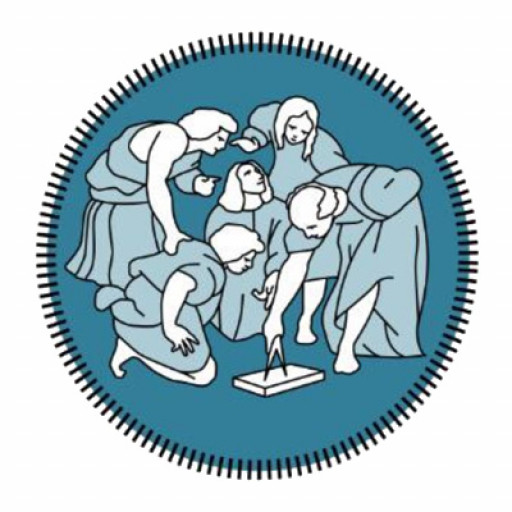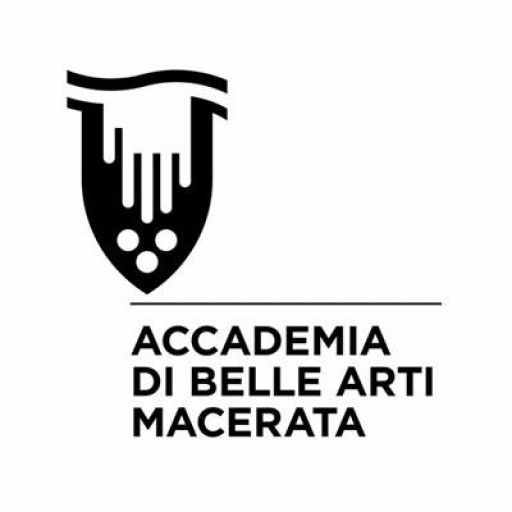The Bachelor of Optometry at UNSW Sydney is a comprehensive and rigorous undergraduate program designed to prepare students for a dynamic career in eye health care. This degree provides an in-depth understanding of the visual system, eye anatomy, physiology, and optical science, equipping students with the essential skills to diagnose, manage, and treat a wide range of eye and vision health issues. The curriculum combines theoretical coursework with practical clinical training, ensuring students gain hands-on experience in real-world settings. Throughout the program, students engage with cutting-edge research and innovative technologies to stay abreast of advancements in optometry and ophthalmology.
The program emphasizes a strong foundation in health sciences, including anatomy, physiology, and pharmacology, integrated with specialized optometry subjects such as refraction, binocular vision, paediatric optometry, low vision, ocular disease, and contact lenses. Students also develop critical communication skills to effectively interact with patients, colleagues, and other healthcare professionals. The clinical components are delivered through supervised placements at university clinics and partner healthcare facilities, allowing students to apply their knowledge directly to patient care under expert guidance.
Graduates of the UNSW Optometry program are well-prepared to work in diverse settings, including private clinics, hospitals, community health centers, and research institutions. They are equipped with the competencies required to provide comprehensive eye examinations, prescribe corrective lenses, detect ocular and systemic diseases, and promote eye health and vision care. The program aligns with national and international standards, ensuring graduates meet the professional requirements to register as optometrists.
With a focus on innovation and evidence-based practice, the Bachelor of Optometry at UNSW Sydney fosters a commitment to lifelong learning and professional development. Students benefit from access to state-of-the-art facilities, experienced faculty, and a vibrant academic community dedicated to advancing eye care and vision science. Upon successful completion of the program, graduates are awarded an accredited degree that opens the door to a rewarding career dedicated to improving people's quality of life through better vision.
The Bachelor of Optometry at UNSW Sydney is a comprehensive and forward-thinking program designed to prepare students for a professional career in eye and vision care. This program combines rigorous theoretical learning with practical clinical experience, ensuring graduates are well-equipped to meet the diverse needs of patients and the evolving demands of the healthcare industry. Throughout the course, students study a wide range of subjects including anatomy, physiology, optics, visual science, and ocular pathology, which form the foundational knowledge necessary for understanding eye health and vision correction.
In addition to core scientific subjects, students engage in specialized coursework such as contact lens fitting, low vision rehabilitation, binocular vision, pediatric optometry, and ocular disease management. The program emphasizes the development of clinical skills through supervised practical training in state-of-the-art facilities, allowing students to apply their theoretical knowledge in real-world settings under the guidance of experienced professionals. This hands-on approach ensures that graduates are confident in conducting eye examinations, diagnosing visual and ocular conditions, and providing effective treatment and management plans.
Furthermore, the program incorporates a strong emphasis on communication skills, cultural competence, and patient-centered care, preparing students to effectively interact with diverse populations. Sustainability and technological advancements in optometry are also integrated into the curriculum, keeping students abreast of the latest developments in eye care technology and best practices. The coursework is complemented by research projects and community outreach activities, fostering critical thinking and a commitment to lifelong learning.
Upon graduation, students are eligible to register as licensed optometrists and can pursue a wide range of career opportunities in private practice, hospitals, community health services, and research institutions. The UNSW Optometry program is accredited by relevant professional bodies, ensuring that graduates meet national standards and are recognized internationally. With a strong focus on clinical excellence, innovation, and patient wellbeing, the UNSW Bachelor of Optometry prepares students to become leaders in the field of eye health and vision care.
Program Requirements:
The Bachelor of Optometry at UNSW Sydney is a comprehensive undergraduate degree designed to prepare students for a professional career in eye care and vision health. To successfully complete the program, students must fulfill a series of academic and practical requirements spanning theoretical coursework, clinical placements, and research components. The curriculum includes foundational sciences such as anatomy, physiology, biochemistry, and ocular physiology, which are essential for understanding the structure and function of the visual system. Students also study optics, ocular disease, pharmacology, and patient assessment techniques to develop the clinical skills necessary for optometric practice.
Throughout the program, students are required to undertake extensive supervised clinical training at affiliated eye care clinics and hospitals. These placements provide hands-on experience in conducting eye examinations, diagnosing visual and ocular conditions, and managing patient care under supervision. To ensure competency, students must complete a specified number of clinical hours, demonstrate proficiency in diagnostic procedures, and acquire communication skills applicable to diverse patient populations.
In addition to coursework and clinical training, students must complete a research project or participate in scholarly activities that promote critical thinking and evidence-based practice. The program emphasizes ethical standards, professionalism, and cultural competence, preparing graduates to serve in a variety of settings, including private practice, hospitals, and community health services.
Graduates are required to meet the registration standards set by the Optometry Board of Australia, which include achieving a minimum grade point average (GPA), passing all practical assessments, and satisfying the demonstration of necessary clinical competencies. Upon successful completion of all academic, clinical, and professional requirements, students are awarded the Bachelor of Optometry degree, qualifying them for optometrist registration and practice within Australia.
The Bachelor of Optometry program at UNSW Sydney offers a comprehensive educational pathway designed to prepare students for professional practice in the field of eye care and vision health. Funding options for students enrolled in this program are diverse and aim to support both domestic and international students throughout their academic journey. Domestic students can access various government-supported financial aid schemes, including student loans and Commonwealth Assistance, which reduce the immediate financial burden by allowing for deferred payment of tuition fees through HECS-HELP and FEE-HELP programs. These schemes enable eligible students to defer their payments until they reach a specified income threshold, thereby making higher education more accessible and affordable.
In addition, UNSW offers scholarships specifically tailored for students pursuing health sciences and allied health programs, including optometry. These scholarships are awarded based on merit, financial need, or other criteria, providing tuition fee reductions, stipends, or research funding. International students enrolling in the Optometry program can explore scholarship opportunities available through UNSW, which may include merit-based awards, country-specific scholarships, or prestigious university-wide grants. It is important for prospective students to carefully review the eligibility criteria and application procedures for each scholarship to optimize their chances of receiving financial assistance.
Apart from scholarships, students may consider external funding sources such as government grants, private foundations, and professional associations related to optometry and healthcare. Many organizations offer grants and awards for students committed to advancing their studies and contributing to the field of vision sciences. Furthermore, students may work part-time within or outside the university to supplement their income, provided that their employment commitments do not interfere with their academic performance. UNSW also facilitates internship and practicum placements that, in some cases, offer stipends or financial rewards, helping students gain practical experience while supporting their studies financially.
For international students, tuition fees are typically higher than those for domestic students; however, some scholarship programs and financial arrangements can help mitigate these costs. It is advisable to contact UNSW's International Student Support Services for tailored advice and assistance in exploring financial options. Additionally, students should consider planning their finances early, taking into account the costs of living in Sydney, health insurance requirements for international students, and other related expenses. Overall, UNSW provides a robust framework of financial aid options, scholarships, and support services designed to ensure that students enrolled in the Bachelor of Optometry program can focus on their educational goals with manageable financial arrangements.
The Bachelor of Optometry (Honours) program at UNSW Sydney is a comprehensive undergraduate degree designed to prepare students for a professional career in eye care and visual health. This program combines core scientific and clinical coursework, providing students with in-depth knowledge of the human visual system, ocular anatomy, physiology, optics, and visual perception. It also emphasizes practical skills through clinical placements, enabling students to gain hands-on experience in diagnosing and managing a wide range of eye conditions and visual impairments.
The curriculum is structured to include foundational sciences such as biology, chemistry, and physics, which underpin understanding of ocular health. Students also explore specialized areas such as binocular vision, contact lenses, low vision rehabilitation, and ocular diseases. The program emphasizes evidence-based practice and incorporates the latest advances in eye care technology and research.
UNSW Sydney's optometry program is accredited by the Optometry Council of Australia and New Zealand (OCANZ), ensuring graduates are qualified to practice professionally in Australia and New Zealand. Throughout their studies, students benefit from access to state-of-the-art clinical facilities, including the UNSW Optometry Clinic, where they observe and participate in patient care under supervision. The program also encourages engagement with research activities, fostering critical thinking and innovation in eye health practices.
The duration of the program is typically five years, combining coursework with practical clinical training. Graduates are equipped with the necessary skills to work as registered optometrists in private practices, hospitals, community health organizations, or research institutions. The program also supports pathways for postgraduate studies, allowing students to specialize further in areas such as ocular disease management or vision science.
Overall, the UNSW Sydney Bachelor of Optometry (Honours) program aims to develop competent, ethical, and compassionate eye health professionals capable of delivering high-quality patient care, advancing research, and contributing to the health and wellbeing of the community.









